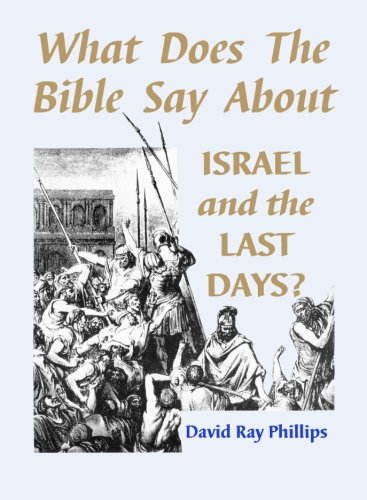The subject of Israel within the biblical narrative is multifaceted, spanning from its inception as a chosen people to its eschatological role. Understanding the biblical perspective necessitates navigating a complex interplay of historical covenants, prophetic utterances, and theological interpretations. We delve into various facets of this subject, illuminating what the Bible posits about Israel’s past, present, and future.
The Abrahamic Covenant: Genesis of a Nation
The foundational bedrock of Israel’s identity lies within the Abrahamic Covenant, articulated in Genesis. This covenant, a pivotal juncture in salvation history, established a unique relationship between God and Abraham. God promised Abraham numerous progeny, a specific land inheritance (Canaan), and the benediction that through his seed, all nations would be blessed. This wasn’t merely a territorial promise; it was a declaration of divine purpose woven into the very fabric of human history. This covenant, though ancient, reverberates throughout the entirety of the biblical corpus, underpinning Israel’s perceived legitimacy and destiny.
The covenant is detailed and expansive. It is essential for understanding the historical backdrop against which the story of Israel unfolds. The promise of offspring as numerous as the stars, for example, emphasizes the magnitude of God’s intentions for Abraham’s descendants. The land grant, specifically Canaan, defines the geographical center of Israel’s identity and plays a crucial role in subsequent narratives of conquest, exile, and restoration.
The Mosaic Covenant: Law and Nationhood at Sinai
Centuries after Abraham, the Mosaic Covenant at Mount Sinai solidified Israel’s status as a nation under God’s theocratic rule. The Ten Commandments, along with a compendium of laws and statutes, provided a framework for righteous living and societal order. This covenant, however, was conditional; obedience brought blessings, while disobedience incurred curses. The consequences of this conditional nature permeate the Old Testament, as Israel cycles through periods of fidelity and apostasy.
The Mosaic law was not solely a legal code; it was a pedagogic instrument intended to reveal the nature of God and the depravity of humanity. Sacrificial rites, dietary laws, and regulations concerning social justice were all designed to point towards a higher standard of holiness. This covenant highlights the tension between divine grace and human responsibility, a recurring theme in the biblical narrative.
The Davidic Covenant: An Eternal Dynasty
The Davidic Covenant, established with King David, promised an everlasting dynasty that would rule from Jerusalem. This covenant, in 2 Samuel 7, is unconditionally promised. It introduces the concept of a messianic king, a descendant of David, who would ultimately establish an eternal kingdom. This expectation of a messianic figure became a central tenet of Jewish faith and later, Christian theology. The prophecies surrounding this coming king shaped the socio-political landscape of ancient Israel and continue to resonate today.
The implications of this covenant are far-reaching. It’s not just about a physical lineage; it’s about a divinely appointed ruler who would bring justice, peace, and redemption. The messianic hope fueled periods of nationalistic fervor and provided solace during times of oppression. Understanding the Davidic Covenant is crucial to comprehending the New Testament’s claim that Jesus Christ fulfills this messianic expectation.
Prophetic Voices: Warnings and Restoration
Throughout the Old Testament, prophets served as divine emissaries, delivering messages of warning, judgment, and hope to Israel. Figures like Isaiah, Jeremiah, Ezekiel, and Daniel critiqued societal injustices, denounced idolatry, and foretold both impending calamities and future restoration. Their pronouncements regarding Israel’s eventual regathering and reconciliation with God continue to be debated and interpreted in various theological contexts.
The prophetic corpus offers a nuanced view of Israel’s relationship with God. It’s not merely a story of unwavering fidelity; it’s a tale of rebellion, repentance, and divine intervention. These prophets used vivid imagery and evocative language to convey the urgency of their messages. Their pronouncements often contained both immediate and long-term implications, blurring the lines between historical events and eschatological expectations.
Israel in the New Testament: Fulfillment and Expansion
The New Testament portrays Jesus Christ as the fulfillment of Old Testament prophecies, particularly those related to the Davidic messiah. Early Christians, initially Jewish, saw Jesus as the promised king who would usher in a new era of salvation. The inclusion of Gentiles into the Christian faith, however, created a theological shift, leading to debates about the role of Israel in God’s plan. Some interpretations emphasize the continuity between the Old and New Covenants, while others stress the discontinuity.
The New Testament presents a complex picture of Israel. On one hand, there’s a recognition of their historical covenantal relationship with God. On the other hand, there’s an assertion that salvation is now available to all, regardless of ethnicity or lineage. This tension has fueled centuries of theological discourse and continues to shape Christian perspectives on Israel today.
Eschatological Perspectives: Israel in the Last Days
Various eschatological schools of thought offer different interpretations of Israel’s role in the end times. Some believe that a literal regathering of the Jewish people to Israel is a necessary precursor to the Second Coming of Christ. Others view Israel’s restoration as symbolic, representing the spiritual revival of the church. These differing interpretations shape attitudes toward contemporary political events in the Middle East and influence theological perspectives on the future of humanity. The literal and the symbolic interpretations are in constant competition.
The subject of Israel in eschatology is highly debated. Dispensationalism, for example, posits a distinct role for Israel in God’s plan, while other perspectives emphasize the universal nature of salvation through Christ, minimizing Israel’s unique significance. Understanding these diverse viewpoints is essential for navigating the complexities of biblical prophecy and its implications for the modern world.
In summation, the biblical narrative presents Israel as a nation with a unique and multifaceted relationship with God. From the Abrahamic Covenant to eschatological prophecies, Israel’s story is interwoven with themes of promise, covenant, disobedience, redemption, and ultimate destiny. While interpretations may vary, the significance of Israel within the biblical framework remains undeniable.









Leave a Comment